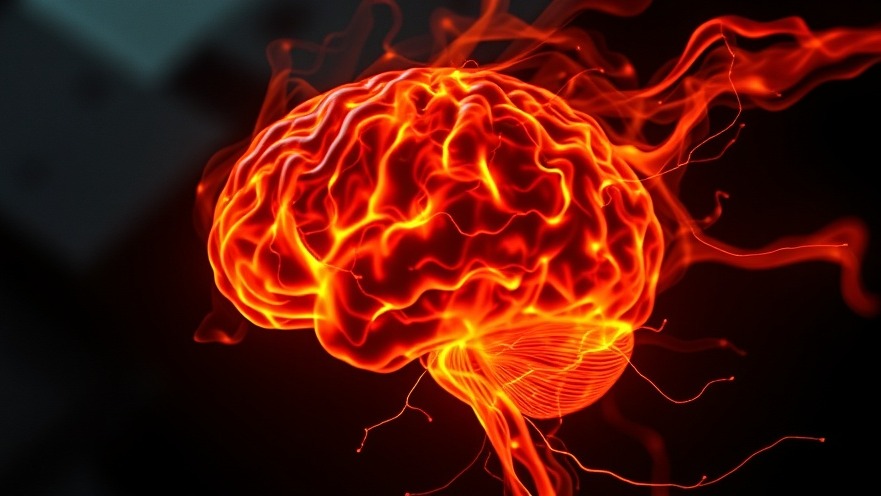
Understanding Anti-NMDA Encephalitis: A Rare but Serious Condition
When 48-year-old Ryan Alto drove himself to the hospital experiencing flu-like symptoms, he had no idea he was on the brink of a neurological crisis. Within hours at the hospital, he was battling hallucinations and seizures, leading to a coma that lasted eight weeks. Alto's journey reflects the alarming reality of Anti-NMDA Encephalitis, a rare autoimmune condition where the body mistakenly attacks the brain.
The Symptoms and Symptoms Trajectory
Anti-NMDA Encephalitis often begins with non-specific symptoms like low-grade fever, fatigue, and headaches, paralleling many common viral infections. What distinguishes it is the rapid progression to more severe neurological and psychiatric symptoms. Patients may experience profound changes in behavior, agitation, and in some cases, full-blown psychosis or seizures. In Ryan’s case, he transitioned from feeling unwell to requiring intensive medical intervention shockingly fast.
The Demographics: Who Does It Affect?
This condition primarily affects young adults, with a noted higher prevalence in females compared to males. While the incidence stands at 1.5 cases per million, awareness surrounding its symptoms can facilitate earlier diagnosis and treatment. Family members, friends, and concierge medical practice owners must educate themselves on these symptoms as they can be mistaken for other psychiatric disorders.
Potential Triggers: What Causes Anti-NMDA Encephalitis?
Understanding the potential triggers for Anti-NMDA Encephalitis is crucial. Among the most significant are tumors, particularly ovarian teratomas in younger women, and herpes simplex virus infections. In Ryan's situation, family history or underlying health issues may have contributed to the appearance of symptoms, but further investigation is critical for all patients experiencing similar issues.
Imagery in Diagnosis: The Role of MRI and CSF Testing
Diagnosis often involves a combination of clinical evaluation, MRI scans, and cerebrospinal fluid (CSF) testing. MRI can reveal inflammation, while CSF tests detect specific autoantibodies that characterize the condition. The challenge remains that many such symptoms, both psychiatric and neurological, can overlap with other disorders. For concierge medical practice owners, this underscores the importance of comprehensive patient evaluations and the integration of neurological assessments in routine care.
Impact on Patient Life: Rehabilitation and Recovery
Recovery from Anti-NMDA Encephalitis can span several months to years, requiring an interdisciplinary approach to rehabilitation. Ryan’s family shared that he cannot walk and struggles with memory and recognition, pointing to long-term cognitive and physical impacts. This illustrates the complexity of care, demanding a tailored rehabilitation strategy involving physical therapy, mental health support, and close monitoring of cognitive functions.
Pivotal Role of Support Networks
The role of family, friends, and healthcare providers is paramount in navigating the challenges presented by this disease. Family members often need to transform their understanding of mental health conditions to encompass autoimmunity's impact on cognitive health. Concierge medical practice owners, seeking to provide holistic and empathetic care, have the opportunity to be proactive in educating patients about such conditions, enhance their recovery experience, and champion their fight for health.
Conclusion: Advocacy for Awareness and Understanding
Ryan Alto's story is a call to action for both healthcare providers and patients alike. The nuances of symptoms that accompany autoimmune conditions like Anti-NMDA Encephalitis require a proactive approach in healthcare. By fostering environments that encourage inquiry, compassion, and comprehensive care protocols, concierge medical practices can lead the charge in transforming lives, changing perspectives on mental health and neurological conditions, and ultimately enhancing patient outcomes.
 Add Row
Add Row  Add
Add 






Write A Comment